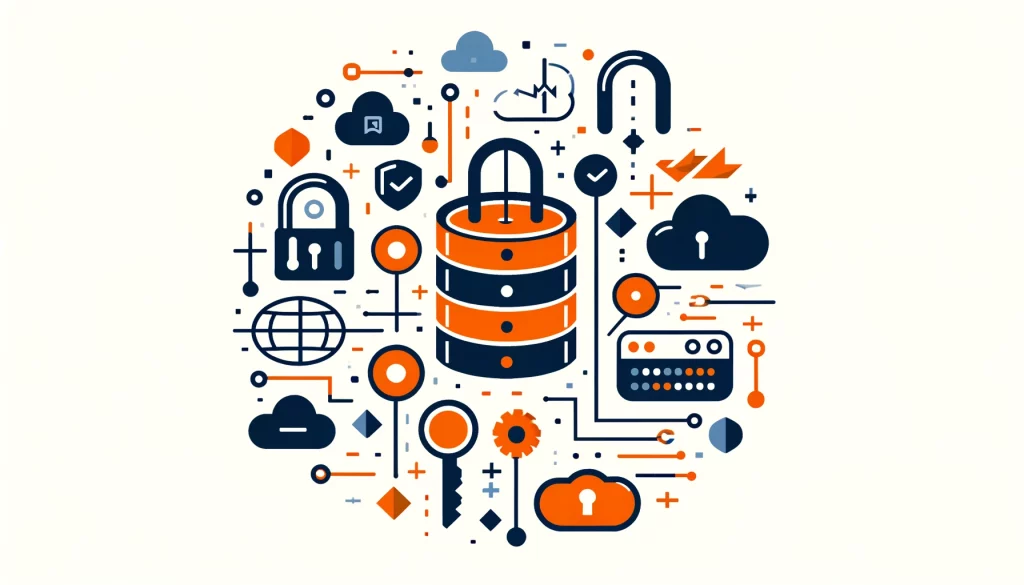
MongoDB Encryption

Introduction
MongoDB is one of the most popular NoSQL databases used by developers today. It offers high performance, scalability, and flexibility for managing unstructured data. However, organizations must ensure MongoDB encryption becomes critical as they store more sensitive data in MongoDB databases.
MongoDB provides several encryption features to protect data both at rest and in transit. This article will cover the basics of MongoDB encryption, including key features and code examples for setting up encryption. We’ll also touch on the security aspects of MongoDB encryption.
What is MongoDB Encryption?
MongoDB encryption encodes data in a MongoDB database to prevent unauthorized access without the decryption key. Encryption helps protect sensitive data from unauthorized access, even if someone gains access to the database files or backups. MongoDB supports several types of encryption:
- Encryption at rest: This encrypts the data files on disk using an encryption key. Even if an attacker steals the database files, they won’t be able to read the data without the key.
- Encryption in transit: This encrypts the data as it moves between the MongoDB server and clients. It prevents attackers from intercepting and reading the data over the network.
- Field-level encryption: This allows encrypting specific fields in a document rather than the entire database. It offers more granular control over encrypting data.
Configuring MongoDB Encryption
To enable encryption in MongoDB, you need to configure it when starting the mongod process. Here are the key configuration options:
mongod --enableEncryption --encryptionKeyFile /path/to/keyfile
The –enableEncryption flag turns on encryption. The –encryptionKeyFile specifies the path to a keyfile containing the encryption key. The keyfile should contain a single key of 32 to 1024 characters. All members of a replica set must use the same keyfile.
You can also specify the encryption algorithm using the –encryptionCipherMode flag. MongoDB supports the AES256-CBC and AES256-GCM algorithms. For example:
mongod --enableEncryption --encryptionKeyFile /path/to/keyfile --encryptionCipherMode AES256-CBC
To encrypt network traffic, enable TLS/SSL:
mongod --tlsMode requireTLS --tlsCertificateKeyFile /path/to/mongod.pem
This requires clients to use TLS/SSL to connect. You need to provide a combined PEM file containing the SSL certificate and key.
Field-Level Encryption Example
Field-level encryption (FLE) allows encrypting specific fields in documents. It uses an encryption key to encrypt fields on the client before sending to MongoDB. To use FLE:
- Generate a master key in a secure external key management system
- Fetch the keys into the client and database
- Specify encrypted fields in the schema using JSON Schema syntax
Example schema:
json
{
"bsonType": "object",
"properties": {
"ssn": {
"encrypt": {
"bsonType": "string",
"algorithm": "AEAD_AES_256_CBC_HMAC_SHA_512-Random"
}
},
"contact": {
"bsonType": "object",
"properties": {
"phoneNumber": {
"bsonType": "string"
},
"email": {
"encrypt": {
"bsonType": "string",
"algorithm": "AEAD_AES_256_CBC_HMAC_SHA_512-Deterministic"
}
}
}
}
}
}This specifies that the ssn and contact.email fields should be encrypted. When you insert a document, the client automatically encrypts those fields before sending to MongoDB.
You can then query on the encrypted fields as normal. The driver automatically decrypts the data in query results.
Security Considerations
MongoDB encryption provides an important layer of security, but it’s not a complete security solution on its own. Here are some other security measures to consider:
- Secure key management: The encryption keys are critical to the security of your data. Store keys in a secure key management system separate from the database. Rotate keys regularly.
- Network security: Use firewalls and VPNs to control access to MongoDB servers. Limit open ports and enable authentication on all connections.
- Audit logging: Enable MongoDB’s audit logging feature to track all access and changes to the database. This helps detect suspicious activity.
- Least privilege: Adhere to the rule of minimal access rights. Only grant users the minimum permissions needed for their roles.
- Data masking: Consider using data masking in addition to encryption for extra protection of sensitive data. Masking replaces real data with realistic fictional data.
Third-Party Security Tools for MongoDB Encryption
For more advanced security needs, consider third-party tools designed for MongoDB. One excellent option is DataSunrise, which provides exceptional and flexible tools for data security, audit, masking, and compliance. DataSunrise offers features like real-time monitoring, auto-discovery of sensitive data, customizable masking, and blocking rules. It supports MongoDB as well as many other databases.
I highly recommend checking out DataSunrise if you’re looking to step up your MongoDB security game. Their team offers free online demos so you can see their powerful tools in action.
Conclusion
MongoDB’s built-in encryption features provide a strong foundation for securing your data. Encrypt data properly, protect sensitive fields, and follow security rules to reduce the risk of data breaches significantly. Incorporate sophisticated instruments such as DataSunrise for a high-quality MongoDB security configuration.
However, security is an ongoing process. Stay on top of MongoDB security updates and periodically review your configuration. With the proper measures in place, you can take advantage of all MongoDB has to offer while keeping your data safe and compliant.
